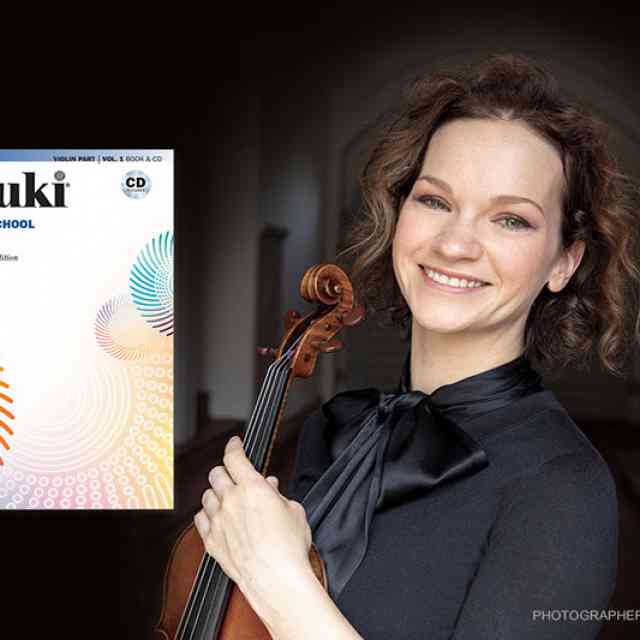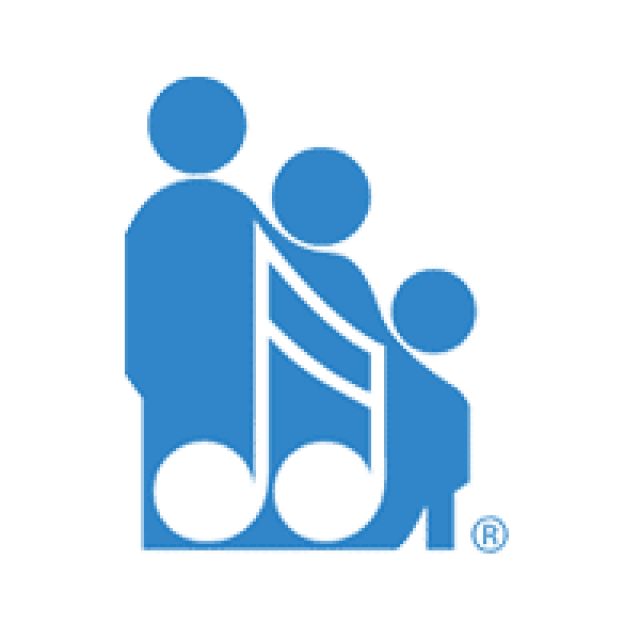Grain by grain
Filled the ditch
That separated them
Built the path
That would unite them
When I was in third grade I wrote stories, and my teachers expressed curiosity as they read my writings and saw how I explained certain subjects to my classmates. Many years later, things started to come together. In the first place I had the desire to write. From time to time, I write nonstop, prose and poems. My teachers recognized my writing ability. Sadly, nobody followed up on it or helped me develop it. I wonder if my life would have been different if the adults around me at that moment would have nurtured it.
As a teenager, I discovered my love for music, forgetting that I used to sing everything when I was a kid. I started taking cello lessons as a hobby and it became a profession. Later in life, I uncovered my second passion: education. This was passed on to me by my ancestors. I understood that when I was explaining subjects to my classmates, I was imitating my parents, who are both educators.
While I was an undergraduate student, I started my Suzuki training. It took me several years to really grasp the depth of the Mother Tongue Method. Children learn music starting at an early age in a team-like setting (parents, teachers, and students) and are immersed in music. Every child has the ability to learn the same way they learned the language their community or country speaks. There is no distinction about ability. It also has nothing to do with geography, race, or economics—there is only potential. The adults and society that surround the child are responsible for nurturing it.
As a Suzuki educator in training since 2003 and practicing as a teacher for more than a decade in diverse environments in Latin America and the United States, I understand even more how crucial it is to have spaces for people to develop their abilities, preferably starting in their early childhood. I also understand how important it is to maintain those spaces for generations. Support and community are fundamental elements in the ability development.
I was fortunate to receive several scholarships, like the Martin Luther King Jr. and the Fulbright. There I found the support of the African diasporic communities. I met people that had the same struggles because of the color of their skin and physical features. The conversations about how to change that crude and cruel reality started. We have lived it on a daily basis since we were children, since our ancestors lived, and continue to experience it through our adult lives. I began to understand that all the micro and macro aggressions that I had received and continue to receive in different social spheres are systemic racism.
The foundations that granted me those scholarships believed in my potential, and I’m deeply grateful for it. While studying under the MLK Jr. scholarship, I was guided and trained continuously on leadership and social justice. During that time I had to practice cello, piano, do work for the eight classes I was taking as an undergrad. I used to spend two and a half hours on public transportation going back and forth between school and home. Additionally, I had 10 hours of English lessons every week. It was an exhausting period. I considered abandoning the scholarship. But the patience and motivation of the benefactors allowed me to take advantage of it and to understand the impact of replicating the opportunity that I was receiving.
When I finished the advanced English classes, they called to advise me on how to start my graduate studies abroad. It was solid counseling. One more time, the love and patience that I received then boosted my endurance. I studied long periods of time, applied for different scholarships, prepared for tests, practiced cello daily, attended individual and group lessons, chamber music and orchestra classes—all while working part time as a cello and early childhood teacher in different institutions in Bogota, where I applied my Suzuki training.
The efforts came to fruition when I won the Fulbright scholarship. But the process didn’t stop there. The hard work continued, and it didn’t really slow down until I finished my master’s, a degree that was another personal and professional resilience test.
Throughout the years and the music, pedagogy, leadership, and social justice training that received, I understood that I must take action to change my musical surroundings. I was the only Afro-Colombian there. And I knew I couldn’t do it by myself. Initially I wanted to create a music school for indigenous and Afro-Colombian communities. Unfortunately, that project didn’t come to completion. It was then that I founded the Afro-Colombian Strings Scholarship.
The idea of the scholarship came to light in 2015. I was visiting former teachers and now colleagues at the Chamber Music School of Bogota. As soon as the idea came to my mind, I shared it with the director of the school. I suggested starting a scholarship that supported Afro-Colombian students in the low income bracket to study violin, viola, or cello with the faculty chairs. The scholarship would cover full tuition for the different programs offered by the school, access to instruments to practice, a bus card loaded to take public transportation, and emotional support and follow up from teachers and benefactors.
The Chamber Music School of Bogota is my alma mater. The school embraced me with real love and patience since its inception in 2006, when lessons happened in my cello teacher’s living room. The school became formal afterwards and spread its wings as a foundation later on. I will never forget how my teachers respected my learning pace. I lived my best years as a growing cellist there. I have very special community memories from the school—for instance, when we used to arrive really early in the morning to practice. At noon, we took a break to make and share lunch together with friends and classmates. Thanks to the unconditional support that I received at the school, I was able to obtain my undergraduate degree. A good portion of my character as a musician and educator comes from what I learned there. I knew the scholarship was going to be in excellent hands.
I did not have donations, but I had passion to expand the opportunities that I enjoyed. I wanted to see more people of the African diaspora playing those instruments. I knew that there was talent galore. So, I used my savings to pay for the first fellow. I would figure out how to bring more donations in for the next semesters (in Colombia, music studies happen per semester). My brother, who is also an artist, but visual, “followed my lead” as you’d say in the US. Then, my husband and my mom joined the cause. Hand by hand, people have come together to continue supporting Afro-Colombian students to grow in an environment full of love and academic, social, and emotional support—a place to develop their character and artistic potential.
The scholarship is now offered for violin, viola, cello, double bass, piano, and voice. Yijhan, the first fellow, is currently a cello undergraduate. She and Karen, current viola fellow, are already talking about their desire to replicate the same opportunity in their communities in other places in Colombia.
It hasn’t been an easy path. It requires a lot of work to plan, run, and maintain the scholarship. A good portion of it is based on volunteering work. The only ones who get paid are the teachers working with the fellows.
By creating a team that opens the doors to Afro-Colombian students to grow and have opportunities, my hope is that the scholarship is a contribution to bigger equity movements in Colombia and Latin America. We are still working hard to try to offer the opportunity to more students in the country, but resources and altruistic hands are needed to accomplish it.
Although I don’t live in my mother country anymore, a part of my heart is still there. I often think about the nation, about all the struggles that people face and share with other countries in Latin America. Indigenous, Afro-Colombian, and peasant communities are at the top of the list. State violence, racism, elitism, machismo, lack of opportunities, forced displacement, pollution of the environment they live in, criminalization, war—the checklist is long.
I was born and raised in Bogota, the capital of Colombia. Despite all the discrimination I had to face, I also had privileges: access to a cello, to teachers, to scholarships, to a nurturing and authentically loving environment at the Chamber Music School of Bogota. Along my Western classical music journey, I only met two other Afro-Colombians, and I always wondered why. When I had enough understanding I knew it was because of geographical and economic disadvantages. It was part of the system. A system that says who can live, work, have opportunities, and be part of the economy of a particular territory. A global unequal system.
Shinichi Suzuki said, “When love is deep, much can be accomplished.” The love I feel for music, my ancestors, and communities propel me even when I feel weak in the face of trying to build a just society. One that understands and applies the true meaning of the word humanity.
Afro-Colombian students’ talent is being nurtured at the Chamber Music School of Bogota thanks to the Afro-Colombian Strings Scholarship. The school is under the umbrella of the Marguz Foundation for the Arts. During its short existence, the CMSB (EMCB in Spanish) has trained musicians and educators that live and practice their profession in Colombia and around the world.
Please contact the scholarship team at [javascript protected email address] to make donations for the Afro-Colombian Strings Scholarship.
More about the Afro-Colombian Strings Scholarship:
hhttps://carolinaborjamusic.com/beca-cuerdas-afrocolombianas
https://www.fundacionmarguz.com/beca-afro
https://www.facebook.com/beca.cuerdas.7
More about Marguz Foundation for the Arts: http://www.fundacionmarguz.com/
Carolina Borja-Marroquín is a SAA registered cello and SECE teacher. She has more than 10 years of experience teaching in diverse communities in Latin America and the United States. As a new directions cellist and Afro-Colombian cantaora (traditional singer), Ms. Borja has gathered her eclectic experience from collaborating with folk fusion and world music bands, interdisciplinary groups of artists, dance companies, chamber music ensembles and orchestras. Thanks to a Fulbright scholarship, Carolina completed a master’s degree in cello performance pedagogy at Ohio University. She has also been a Martin Luther King Jr. and the United States State Department Fellow, among other distinctions. Carolina is the founder and director of the Afro-Colombian Strings Scholarship and the Tutti Music Program.









